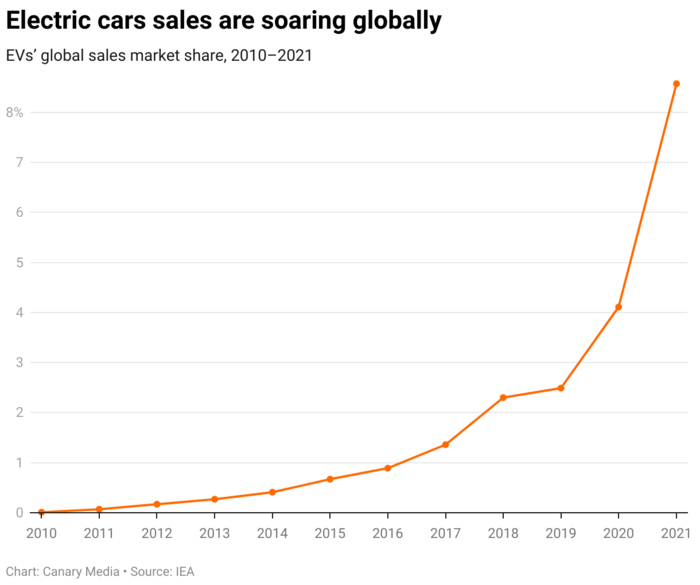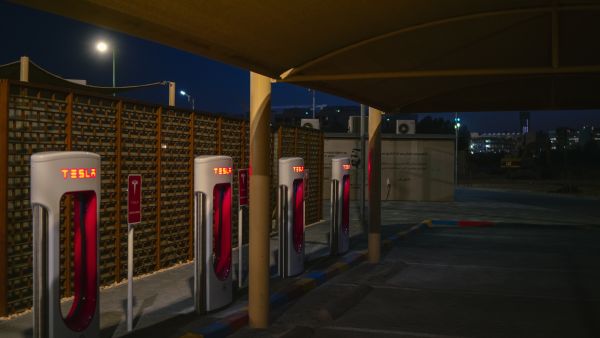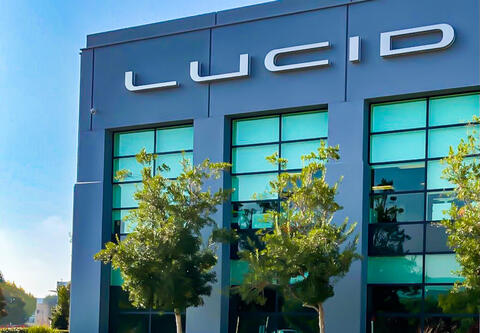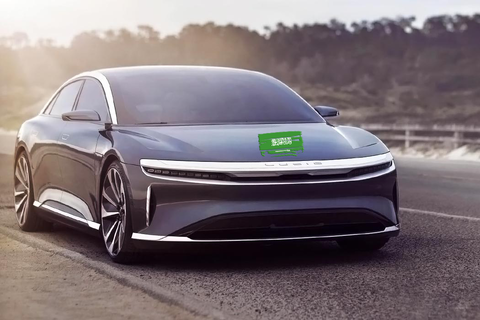The global transformation to Electric Vehicles (EVs) has started only 6 years ago, and the Middle East has been no exception.
Back in 2016, only 1 million EVs were running worldwide. Today, six years later, the number of EVs purchased has exceeded 20 million, with 500,000 new cars sold every month, according to 2022 figures.
Out of all car sales in 2021, 8.6% were electric vehicles, according to the International Energy Agency (IEA).
Most experts estimate 2022 sales of electric vehicles to be significantly higher than ever, due to historic hikes in fuel prices since the beginning of the year.
The growing popularity of electric cars is not only driven by soaring gas prices worldwide but is also the result of years-old government plans to promote green transportation options that minimize carbon emissions as much as possible, which can accelerate the fight against Climate Change.

Source: Canary Media
Globally, China tops the world's consumption of electric vehicles with 58% of the global market. The United States comes in the second place with 10.9%, while Germany follows in 3rd place.
In terms of EV manufacturers, Tesla has the global lead with 22.7%, followed by Chinese-made BYD, and Germany's Volkswagen.
EV Figures in MENA
In the Middle East, the popularity of electric vehicles has been growing steadily, without recording major spikes. Despite the United Arab Emirates and Saudi Arabia's ranks in the top 50 countries in terms of EV transition, it seems that the abundance of oil in Gulf countries has had a slow impact on EV sales in the region in the past years.
However, this is bound to change from 2022 onward, mostly influenced by spikes in fuel prices this year.
Market Volume of Electric Vehicles (EV) Production in the Middle East and Africa (2018 – 2021)
According to a recent survey conducted by Audi Abu Dhabi reported by Khaleej Times, 52% of UAE residents are considering hybrid or electric vehicles due to the rise in fuel prices. The report also cited the managing director of New Auto Amjad Nasr, managing director of New Auto who said that demand for EVs in the UAE is 200% up compared to 2021.
In the AlixPartners Automotive Electrification Index released in April 2022, the UAE kept its rank as the world's 38th, while Saudi Arabia jumped 5 ranks making it to the 49th spot, pointing at the pace at which EVs are being sold across the Gulf kingdom.
Neighboring Jordan has reported a 185% growth in the number of EVs registered in the country during the first fourth months of 2022 compared to the same period of 2021, at a time sales of all other vehicles dropped, including hybrid ones.
This increase has been widely linked to the availability of affordable Chinese EVs arriving at Jordan's markets, especially as the country is still recovering from serious economic damage following the pandemic.
MENA EV Policies
In addition to fuel prices and concerns for the climate, many EVs have been purchased in response to government initiatives that encouraged and facilitated the purchase of plug-in cars.
For example, the Emirate of Dubai was the first in the UAE to add 200 Tesla EVs to its Taxis in 2017. A year later, Dubai built over 200 charging stations and allowed drivers to charge their EVs for free until the end of 2021. The Emirate continues to offer free parking for EVs until the end of 2022.
A few kilometers away, the Emirate of Sharjah announced offering free charging stations for EVs until the end of 2025, while Sharjah-based Bee'ah company ordered 50 fully-electric Tesla semi-trucks for its public waste management fleet in 2018.
In 2022, the well-known ride-hailing app Uber celebrated having 4% of its trips completed using EVs, while it announced that one in four trips booked in the UAE will be emission-free by 2030.
In 2015, Jordan's government exempted plug-in cars from registration fees, hoping to encourage Jordanians to consider EVs instead of fuel-run cars.
Saudi Arabia has also announced several initiatives to push for the EV transition in the country, including the 2020 decision of designating 5% of every parking space for EVs.
The Saudi government has also been making slow but consistent moves to transform its public fleets into EVs, including an order made recently from the EV manufacturer Lucid Motors for 50,000 to 100,000 cars by 2030.
MENA Investments in EVs
This surge of interest in EVs both in the world and the Middle East has inspired the region's richest nations to invest in the industry, particularly oil-rich countries pledging to sustainable and green future at a time they maximize efforts for diversifying economic resources.
One of the earliest regional investments in EVs was the Saudi $1 billion venture in Lucid Motors in 2018, one the country continues to support by drafting plans to use Lucid EVs to operate government fleets in a few years.
The UAE has also welcomed the first EV plant in the Gulf region, when M Glory Holding Group announced opening its factory in Dubai Industrial City in March 2022, one where 55,000 Al Damani DMV300 are expected to be produced annually.
We are yet to see how spiking fuel prices are going to affect the EV market globally, and consequently, hasten the transformation for green EVs.









